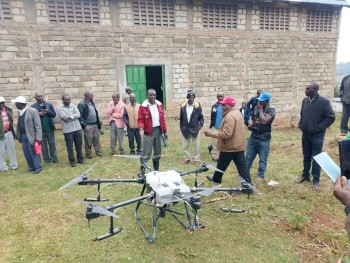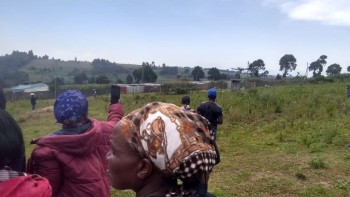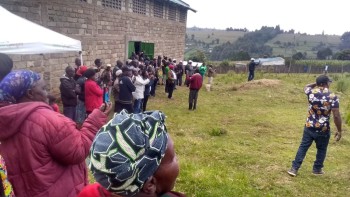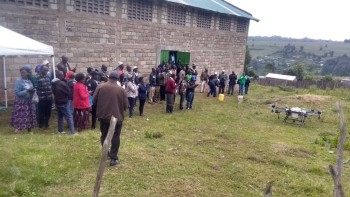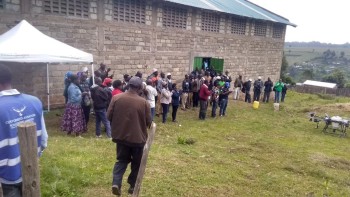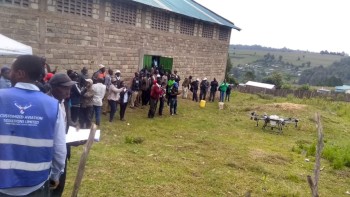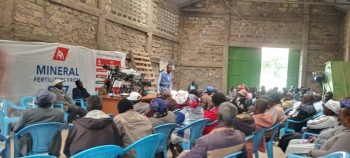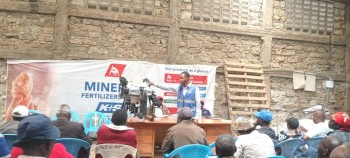On 24th July 2025, the University of Eldoret Outreach Centre, in partnership with Customized Aviation Solutions (CAS), conducted a Drone Awareness Training at Kuona Mbele Farmers’ Society. This event followed a needs assessment conducted in May 2024, during which farmers expressed keen interest in adopting modern agricultural technologies to improve efficiency, reduce production costs, and embrace climate-smart practices. The training was designed to showcase the benefits and practical applications of drone technology in agriculture, bringing together farmers, extension officers, technology providers, and other stakeholders. A total of 52 farmers were present.
The programme began with a theoretical session, introducing participants to various uses of drones in farming, including disease and pest scouting, nutrient status analysis through aerial imaging, and the precision spraying of agrochemicals. This was followed by a live field demonstration in which a drone sprayed herbicide on a neighboring plot. Farmers were particularly impressed by the technology’s efficiency, noting that a drone can spray one acre in just eight minutes using a thirty-litre tank, producing a fine mist that ensures uniform coverage while minimizing wastage.
One of the most notable outcomes of the training was the enthusiastic response from women farmers. Traditionally, the physical demands of carrying heavy knapsack sprayers over large areas have limited women’s participation in commercial crop production. Drones remove this barrier by eliminating strenuous manual spraying, reducing dependency on hired labor, and ensuring timely application of agrochemicals. This not only makes farming less physically demanding but also opens opportunities for women to expand into high-value crops, increase their acreage, and even establish service enterprises around drone operations. Several young women expressed interest in receiving further training, indicating a positive shift towards greater gender inclusivity in agribusiness.
A key discussion point during the session was the absence of agrochemical dilution guidelines specifically tailored for drone application. Most manufacturers base their recommendations on knapsack sprayer calibration, which does not align with the different spray volumes and delivery mechanisms of drones. Participants agreed on the need for further research to determine optimal dilution rates, evaluate the impact of drone spraying on pest control and yields, assess residue levels in crops, and develop appropriate operational guidelines and regulatory frameworks. Representatives from agrochemical companies present at the meeting committed to raising the matter with their technical teams.
The training concluded with farmers expressing interest in crop-specific follow-up sessions, particularly for potatoes, and a willingness to collectively pilot the technology on wheat fields during the current growing season. This enthusiasm reflects a readiness to adopt precision agriculture solutions and signals the potential for transformative change in local farming systems.

